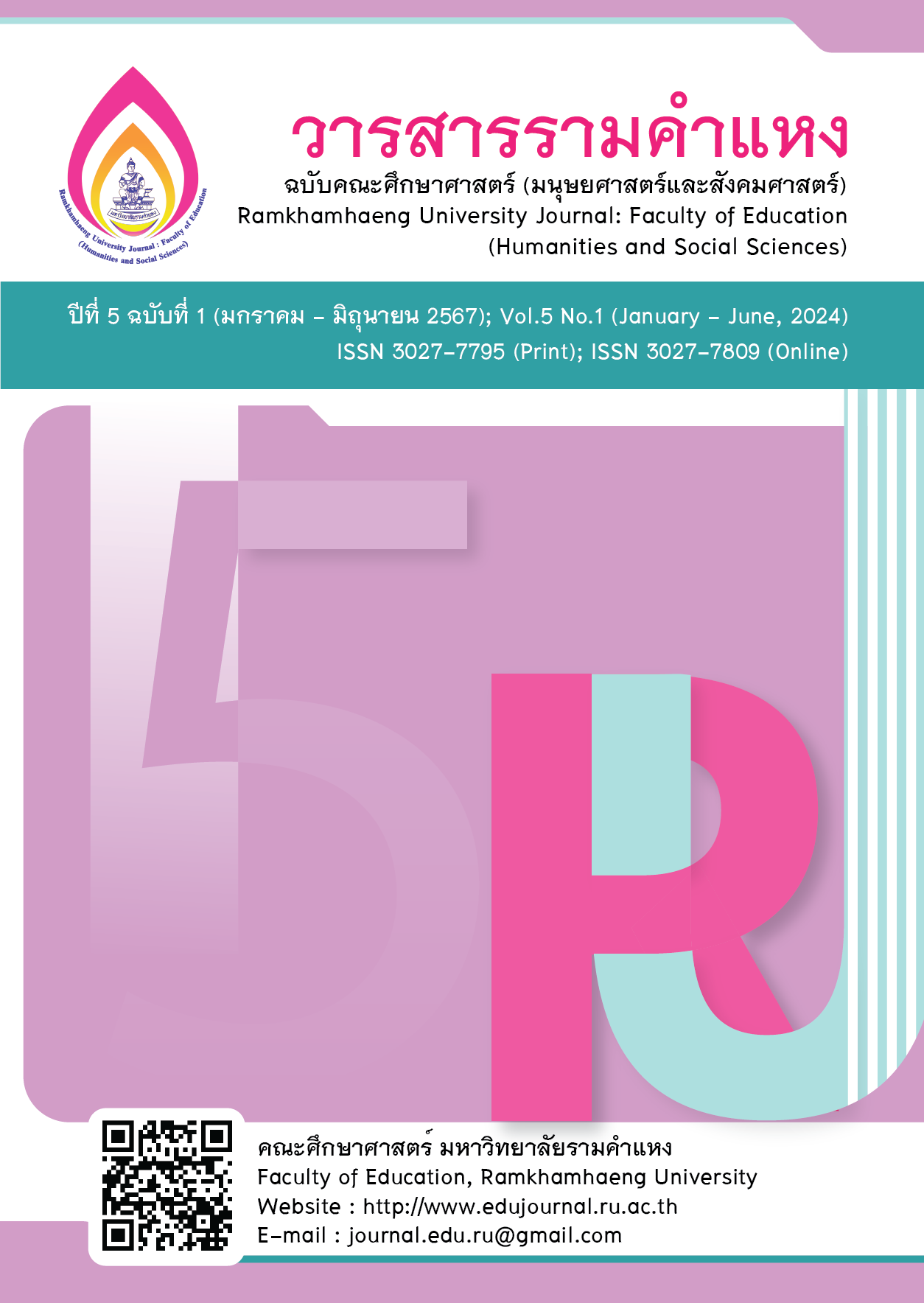Guidelines for Learning Management to Promote Higher-Order Thinking Skills for Learners as Digital Citizens
Main Article Content
Abstract
This academic article presented a learning management approach to promote higher-order thinking skills for learners as digital citizens. The approach was designed through the synthesis of essential skills for learners, learning trends, ideas of learners as digital citizens, and higher-order thinking skills. The approach consisted of five steps: stimulating thinking skills, analyzing theme, plot and characters, creating the body of knowledge, assessing the practical application of knowledge in a different situation, and sharing knowledge and ideas with friends within the class and through social media. The approach was considered as guidelines for teachers to create classroom activities in accordance with the concept of active learning. Students were able to gain skills required for having higher-order thinking. Due to the application of the approach in the classroom, students were expected to have the appropriate roles and responsibilities of digital citizens.
Downloads
Article Details

This work is licensed under a Creative Commons Attribution-NonCommercial-NoDerivatives 4.0 International License.
ผู้ส่งบทความ (และคณะผู้วิจัยทุกคน) ตระหนักและปฎิบัติตามจริยธรรมการวิจัยอย่างเคร่งครัด ทั้งนี้บทความ เนื้อหา ข้อมูล ข้อความ ภาพ ตาราง แผนภาพ แผนผัง หรือข้อคิดเห็นใดๆ ที่ปรากฎในบทความ เป็นความคิดเห็นและความรับผิดชอบของผู้ส่งบทความ กองบรรณาธิการไม่จำเป็นต้องเห็นตามเสมอไป และไม่มีส่วนรับผิดชอบใดๆ โดยถือเป็นความรับผิดของของเจ้าของบทความเพียงผู้เดียว
References
Auster, E. R., & Wylie, K. K. (2006). Creating active learning in the classroom: A systematic approach. Journal of Management Education, 30, 333–354.
Baldwin, J., & Williams, H. (1988). Active learning: A trainer’s guide. Blackwell.
Bangkokbiznews. (2022). Essential skills for the workforce in 2022. https://www.bangkokbiznews.com/social/982991#google_vignette (in Thai)
Bureau of Academic Affairs and Educational Standards. (2010). Guidelines for organizing activities for student development according to the core curriculum of basic education, 2008. Printing House of the Agricultural Cooperatives Association of Thailand. https://sgs.bopp-obec.info/menu/Data/guidance01.pdf (in Thai)
Center for Teaching Innovation, Cornell University. (2016). Active learning. https://teaching.cornell.edu/teaching-resources/active-collaborative-learning/active-learning
Century, I., & Delors, J. (1996). Learning: the treasure within; report to UNESCO of the International Commission on Education for the Twenty-first Century (highlights). UNESCO: United Nations Educational, Scientific and Cultural Organization.
Detakupt, P. (2017). The 7C skills of teachers 4.0. Chulalongkorn University Press. (in Thai)
Felder, R. M., & Brent, R. (1996). Navigating the bumpy road to student-centered instruction. College teaching, 44(2), 43-47.
Harvard Graduate School of Education. (2018). Digital citizenship resource list. https://www.mcc.gse.harvard.edu/resources-for-educators/digital-citizenship-resource-list
Khammanee, T. (2016). Decoding the philosophy of sufficiency economy for teaching thinking processes. Chulalongkorn University Press. (in Thai)
Office of Knowledge Management and Development. (2017). Learning trends of the new generation in the digital era. https://www.okmd.or.th/okmd-opportunity/FutureLearningPlatform/899/Digilearn_infographic (in Thai)
Office of the Basic Education Commission. (2017). Learning standards and indicators for mathematics, science, and geography (revised edition B.E. 2560) according to the basic education core curriculum B.E. 2551. https://drive.google.com/file/d/1MDQEDkqGs01PnyzqEnyTVVNTS776ObCz/view (in Thai)
Panich, W. (2012). Way to create learning for students in the 21st century. Sodsri-Saritwong Foundation. (in Thai)
Phoyen K. (2021). Active learning: Learning satisfy education in 21st century. Journal of Education Silpakorn University, 19(1), 11- 28. https://so02.tci-thaijo.org/index.php/suedujournal/article/view/245317 (in Thai)
Pongsaparn, P., Newrat, K., & Leetrakul, S. (2018). Causal factors affecting learning and innovation skills in 21st century of Mathayomsuksa 2 students under Chiang Rai educational service area office 3. Kasalongkham Research Journal, 8(1), 21-30. https://so04.tci-thaijo.org/index.php/ksk/article/view/132504/99455 (in Thai)
Rukchaipanit, W. (2015). Creativity-based Learning (CBL). Walailak Journal of Learning Innovations, 1(2), 23-37. https://so03.tci-thaijo.org/index.php/jliwu/article/view/95056/74245 (in Thai)
Wongkitrungruang, W. (2018). Digital citizenship. https://thaidigizen.com/wp-content/uploads/2018/06/DigitalCitizenship-Book-ok.pdf (in Thai)
World Economic Forum. (2020). The future of jobs report 2020. https://www3.weforum.org/docs/WEF_Future_of_Jobs_2020.pdf


